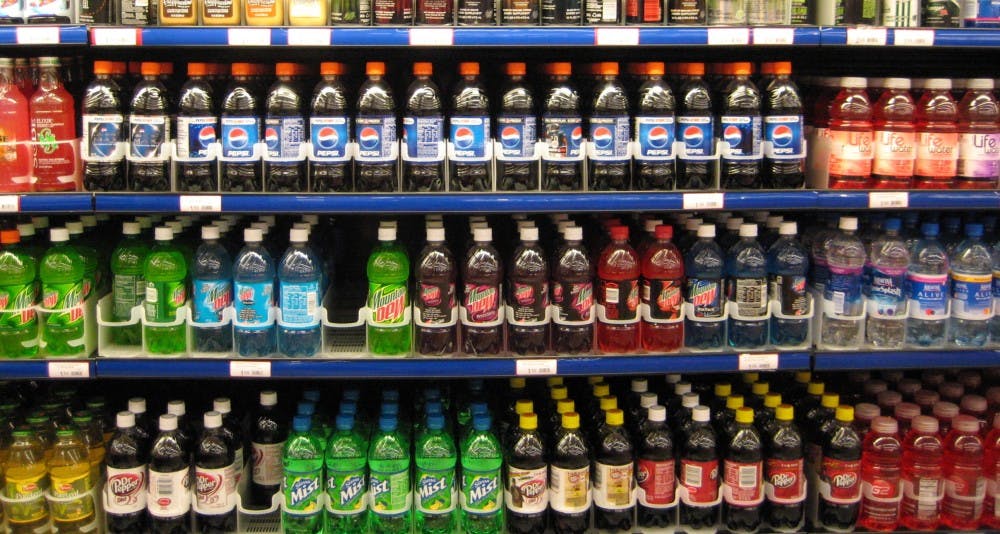I have a confession to make: in my head, I use the word “pop” instead of “soda” when I see someone grab a Mountain Dew or when I pass the Coca Cola bottles in the campus store. It’s a part of me; I have been saying it for as long as I remember, and until I left high school, I never thought much about it. Before coming to Duke, I never realized that it was weird to say “pop” to refer to the category of sweet drinks that students add to their alcohol to mask the taste. After one of my friends caught me saying it and, mostly in jest, called my choice of words “gross,” I’ve put a lot of thought into what I say when referring to pop and rarely say the word out loud.
But after considering why I stopped saying it, I’ve realized that “pop” is more than a unique linguistic feature from my childhood and from my home of rural Pennsylvania—it’s a cultural tradition that defines the place that I was born in.
I grew up in a town in Western Pennsylvania that is home to between 700 and 1000 people. Yes, you read that correctly. Seven hundred. My next-door neighbors are Amish and have a woodworking business. The family that lives across the street has a patch of woods where they hunt deer. One of my soccer coaches growing up was a farmer, and his sons both played on teams with me, drove trucks and worked harder than almost anyone I knew. This is a small town small town.
Growing up amongst the farms, mills, Amish families and stalks of corn that mark the Pennsylvania landscape, enabled me to learn some things that people from other places would never know. I learned how to avoid neighbors’ guard dogs while running and how to take care of different types of farm animals. I learned to ride a four-wheeler (also known as a quad/ATV if you don’t know the PA lingo), how to survive without air conditioning in an old farmhouse, how to garden and that fries with vinegar are actually delicious.
But unless you are very close to me at Duke, you’ve likely never heard me say a word about most of those things. Why? Those are things that set me apart at Duke, but not things that Duke students value when they say they value “diversity.” If I talk about the fact that I am from a small rural town in Western Pennsylvania, I am associated with things that (most) Duke students look down upon—with being poor, with being a redneck, with all of the preconceived notions that primarily wealthy urban and suburban students have when they think about rural places.
Because of those reasons, or because fitting in at Duke often means pretending I come from a major metropolitan area—or, as we Duke students like to say, “Just outside of [insert city name here]”—I do not often discuss my hometown unless we are already friends. For those same reasons, I do not tell people that some of my most cherished pets growing up were my goats, or that I’ve run through cornfields at night or accompanied my mom to a deer processing shop (think: a butcher shop, but a lot more in-your-face).
Because prevailing Duke culture—or what is deemed socially acceptable—is being from Connecticut or California and looking, acting and especially speaking, the part, I’ve stayed quiet. Because it’s not cool, and because it’s a pain to explain why I use different language than my peers, I try to remember to say “soda,” or avoid saying anything when I can.
But I refuse to stay silent on the idea that what is cool is being (or pretending to be) from WASPy Northeastern suburbia or one of the wealthy Bay Area suburbs. I do not think that trading in one of your own linguistic idiosyncrasies or other harmless cultural practices for acceptance is something we as Duke students should support, whether we are from the middle-of-nowhere or from Austin, Texas or from another country entirely.
If we want a more inclusive—not just diverse—social environment, we should try not to subscribe to stereotypes, we should not tease our friends for parts of themselves that are both harmless and hallmarks of their upbringings, and we should end the stigma of saying “pop.”
Luke Sallmen is a Trinity sophomore, a “pop” evangelist, and he looks forward to hearing from yinz in a later column. His column runs on alternate Wednesdays.
Get The Chronicle straight to your inbox
Signup for our weekly newsletter. Cancel at any time.

